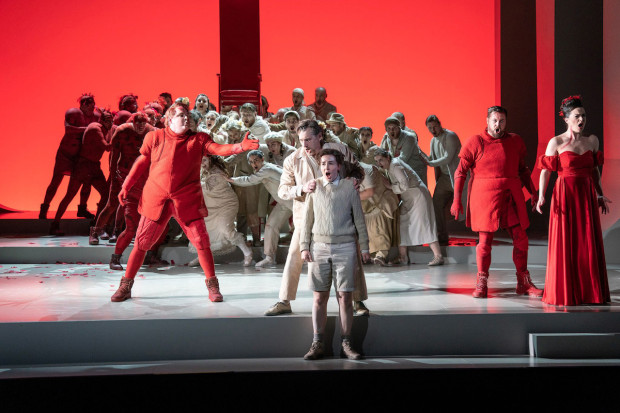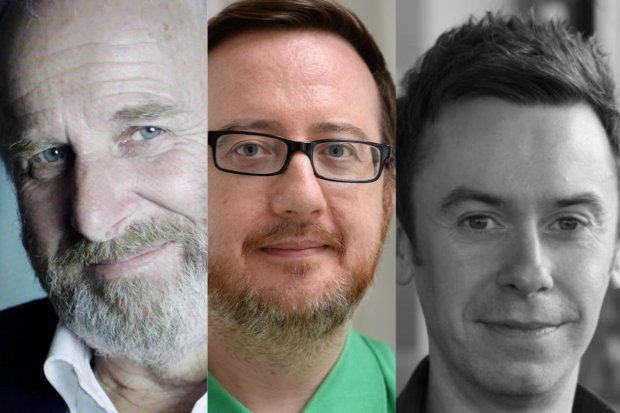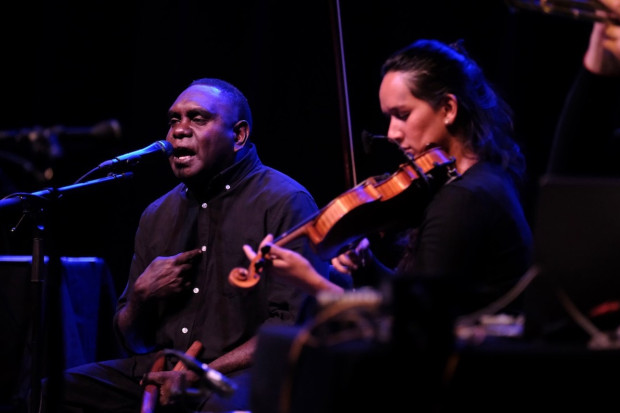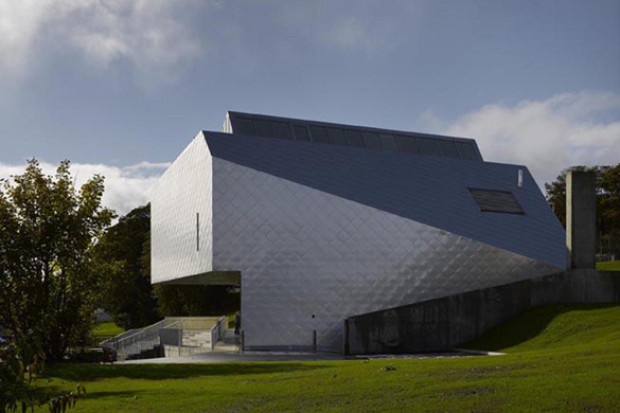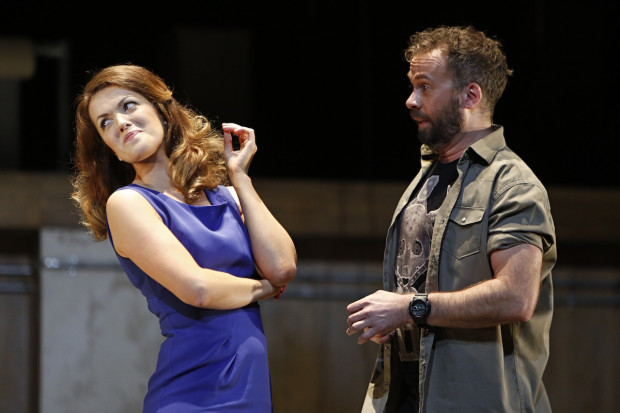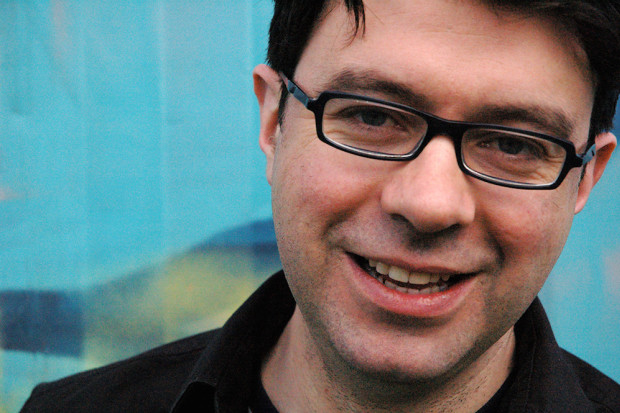O'Leary the Levitator
In a number of international anthologies, a young Irish poet appears alongside some of the most reputable American and European poets of the age. We know that old anthologies are full of poems we now consider dull beyond belief, but here are voices we respect suggesting that this obscure Irish poet is their peer. But who is this Irish poet? Where are the poems, the books, the reviews? Has he given any readings? Someone half-recalls a single-paragraph review in the Irish Times. Someone knows someone who claims to have attended a reading in Clonmel which also featured Roy Fisher. And did our young poet read alongside Lorand Gaspar in Cork a few years ago? And didn’t he give a reading in Dublin a few years ago during the Writers’ Festival? How did that go?
Our poet is imaginary, and even a very real non-mainstream poet such as Trevor Joyce and his younger associates have academic backers to proclaim their merits and produce learned and suitably laudatory articles about their work. But there is an improvising Irish guitarist whose story closely resembles that of our imaginary poet. Let us sketch out some of the essential facts. Mark O’Leary left Cork for San Francisco at the age of seventeen and studied music there. O’Leary has played with many fine players, from the margins of rock, through contemporary mainstream and on towards the avant-garde. He made sufficient impression to be invited to tour Europe with pianist Paul Bley, a creative figure in his own right for decades – Bley made key recordings with Jimmy Giuffre in the early 1960s – but always ready to listen to and open doors for younger talents.
O’Leary has brought some interesting players to Ireland, but these have often been in small venues (notably the Sirius Arts Centre in Cobh) and with little or no publicity. On one occasion I was surprised to come across a poster in Clonmel Arts Centre for a performance with the Dutch percussionist Han Bennink. How many people who might have been interested had heard about this? Had any attempt been made to link up with other venues? Would the visiting musician have been interested in performing to a larger audience? Or was this a casual adjunct to a holiday visit?
Any attempt to deal with Mark O’Leary seems destined to take the form of a set of questions. Somewhat mysteriously, O’Leary appears to have no active connection with the existing jazz scene in Ireland. To my knowledge, he has not played with any of his notable Irish contemporaries, whether mainstream, crossover or avant-garde. Has he sought out other players and been rebuffed? Has he simply gone his own way and not bothered? Are people unaware of him because he has operated largely in the United States? Has any Irish-based player or any organiser sought him out?
In an earlier JMI, I wondered in passing why so little was heard of O’Leary. When I did manage to hear him shortly afterwards, it was in a context that, I would still maintain, did not suit his talents. As part of the Up North! festival in December 2002 – an exchange between Irish and Scandinavian contemporary musicians organised by Donnacha Dennehy, Fergus Sheil and Anders Beyer – O’Leary wrote music for the Cikada string quartet against which he himself soloed. Strangely, this is the only relatively high-profile occasion on which O’Leary has played in Ireland in recent years. He could easily slot into an event like the Bray Jazz Festival.
There is no longer any excuse for not knowing O’Leary’s work. Over the last year or two Leo Records have issued a sequence of five O’Leary CDs. The company he keeps is impressive and should give some idea of his musical affinities: Steve Swallow (bass guitar), Tomasz Stanko (trumpet), Mat Maneri (viola), Matthew Shipp and Uri Caine (piano), Billy Hart, Pierre Favre, Randy Peterson and Ben Perowsky (drums/percussion). What follows is a brief look at the musicians in question and one listener’s impressions of the music.
Company
The most recently issued CD – Awakening – is in fact the oldest recording, dating back to September 2000, when Steve Swallow on bass guitar and Pierre Favre on percussion joined O’Leary in a studio in Fermoy. Swallow would be known to most jazz-lovers, having played in numerous contexts since making his mark with Paul Bley in the Jimmy Giuffre 3 back in the 1960s. Though probably less well-known to the general public, Favre must be the only musician whose CV encompasses Lil Hardin Armstrong, the ferocious free tenor sax of Peter Brotzmann and Arvo Part. I saw this Swiss percussionist – looking, in fact, as if he had just come from a desk in the nearest bank – a few years ago in a duo with pianist Irene Schweizer.
The music on Awakening – mostly O’Leary compositions – is gentle, ruminative and lyrical. Favre’s solos are entirely consistent with this approach, models of discreet invention, drawing attention inward rather than shouting at the world. This would not be my personal favourite among the CDs under examination, but it should appeal to listeners who incline to ECM values – which, judging from Irish Times features and reviews, and from concerts of recent years, means about 80 per cent of the Irish jazz public.
A few months later, Mark O’Leary was back in Fermoy, this time in the company of Polish trumpeter Tomasz Stanko and drummer Billy Hart. As it happens, Stanko has become a major figure in the ECM roster – Leosia (with Bobo Stenson, Anders Jormin and Tony Oxley) shows that style of play at its best. Stanko was also seen in Vicar Street last year. Billy Hart played with Wes Montgomery in the ’60s, participated in Miles Davis’ On the Corner and has a long and varied history as a sideman. Levitation is a more energetic CD than Awakening, one which sees Stanko pulling away from the plaintive refinements of ECM-land and joining O’Leary in a rawer, looser style. Mixing compositions by the leader with collective creations, Levitation sometimes harks back to high-energy 1970s jazz-rock guitar, but also settles into foot-tapping grooves. Is there enough variety of texture and invention to justify its 71’11 length? Probably not. Pruning fifteen or twenty minutes away might have left a more concentrated statement. O’Leary really lets rip half-way through the 16’15 title track.
The 4th of January 2002 was a big day for our guitarist. On that day, he recorded two trio sessions with viola player Mat Maneri, one with pianist Matthew Shipp, the other with drummer Randy Peterson. The sessions are intriguingly different. Having played alongside bassist William Parker in the David S. Ware quartet, Matthew Shipp came into his own in the 1990s, both as leader and player. Gravitational Systems, his duo with Mat Maneri on the Hatology label, is a tremendous meeting of minds, with an extraordinary imploding version of Greensleeves thrown into the mix. Maneri, whose principal allegiance seems to have switched from violin to viola, inherited a questing spirit and technical curiosity from his father, Joe, but was constructing his own musical world from a young age.
It seems to me that it takes some time for O’Leary to work out a common language with his partners on Chamber Trio. On a number of tracks, he seems to be working outside or in parallel with his fellow-musicians. On the later tracks, there is more genuine trio music, with all three voices interlocking and interweaving, creating a densely textured musical world.
The other trio is more consistent. With Randy Peterson subtly laying the ground, O’Leary and Maneri engage in genuine dialogue as O’Leary journeys into Maneri’s world. Here, tentative, fragmented phrases are repeatedly worked over and varied as if to find some elusive quality or essence. The process may or may not lead to a form of resolution, it may accelerate or dissolve itself, but there is no denying the fascination of the process. Earlier, we encountered the lyrical and energetic O’Leary; Self-Luminous, the trio with Maneri and Peterson, shows him in a particularly disciplined environment.
The last of our recordings, Closure, is another trio. Like Mat Maneri, a man of broad musical culture, pianist Uri Caine attracted a non-jazz audience with his re-imaginings of Bach, Mahler and other composers. (The Goldberg Variations on the Winter and Winter label is the best known.) Closure, largely made up of O’Leary compositions, tends to alternate high-energy pieces in a post-bop idiom with gentler, sometimes brooding mood-pieces, somewhat reminiscent of those on Awakenings. With Ben Perowsky comfortable both as action-man and colourist, and Uri Caine switching modes and splashing colour with equal aplomb, O’Leary seems in his element. At times, almost too much so: it may have been a matter of pent-up ideas needing release, but for track after track O’Leary appears unable to drop out even for a moment. Mightn’t the overall listening experience be richer if Uri Caine had been given space to express himself himself within the structures provided – on an already buzzing track like ‘Prepared’, for example?
Though I nearly swooned in shock and delight on first hearing John McLaughlin’s guitar on the Mahavishnu Orchestra’s Inner Mounting Flame, the guitar is far from being my favourite instrument in jazz. I do not know whether the impressions gathered here will hold up under further listening. My purpose has been to draw attention to the body of work that Mark O’Leary has built up, to point out the quality of the company he keeps, to ask why he has received so little attention in Ireland and to throw out my own tentative reactions as an encouragement to further discussion of this music. Over to you.
Visit www.leorecords.com or www.markoleary.net
Published on 1 September 2006
Barra Ó Séaghdha is a writer on cultural politics, literature and music.












